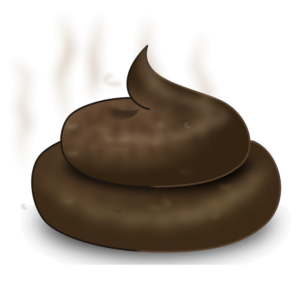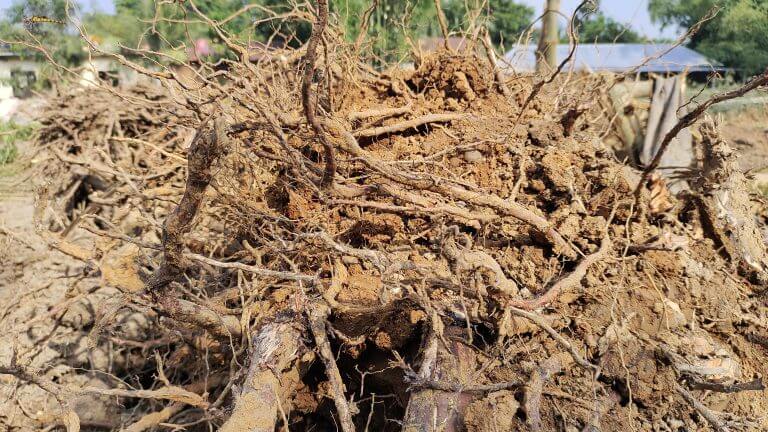The most common septic system problems are clogs, slow drainage, bad smells, pooling in the drain field, root infiltration, and septic tank leaks. All of these can be prevented with a little education and preventative maintenance. Your septic system is a critical piece of your home, but one that gets neglected by many homeowners, much to their chagrin at some point. No one wants to be hosting family Christmas when the toilet stops flushing and starts regurgitating sewage from the septic tank!
Clogs and Blockages
Clogs and blockages are one of the most frequent issues in septic systems. This usually occurs when too much solid waste enters the septic tank or if non-biodegradable materials are flushed down the drain. Over time, these materials can build up, clogging pipes and preventing proper drainage.
Prevention
Don’t flush anything that isn’t human waste or toilet paper – We could make a long list of things people flush that they shouldn’t, but it is easiest to say: don’t flush anything that isn’t human waste or toilet paper. Yes, it is worth saying it twice.
Another easy preventative measure is having a trash can easily accessible from the toilet, which provides an obvious alternative for where these no-go items can be disposed of. Another key to preventing blockages is regular pumping. As the tank fills up scum can block pipes and potentially cause larger issues. Nix this in the bud by keeping your tank more empty than full.
Slow Drainage or Backups
This is similar to clogs and blockages, but can be caused by different things such as an overloaded septic system (using too much water too fast) or poorly draining leach field. The result can be anything from a weak flush, to the toilet regurgitating shit from last week (literally).
Prevention
Keep the drain (leach) field clear of any non-grass vegetation. Know where you drain field is, and check it for standing water or over-saturated soil from rain, irrigation, or other. Be mindful of excessive water usage – any water you use flows into the septic tank, and then must drain into the leach field. If you fill your tank up with water it can cause backups or slow drainage until it has worked its way into the drain field, and eventually the ground.
Foul Odors
Foul odors around your septic tank or drain field are an unmistakable sign of trouble. A malfunctioning septic system can release unpleasant smells into the surrounding air and could indicate that there is a blockage or failure in the tank, pipes, or drain field.

Prevention
The easiest way to prevent foul odors is to keep your septic system regularly pumped and inspected. Making sure any ventilation your tank relies on is clear and allowing for airflow is something that that can be checked in an inspection and will help prevent odor buildup. If you experience strong foul odors it most likely means there is too much sludge and scum in your tank and it needs pumped. Worst case scenario it indicates a leak in your tank or overflow into the drainage field.
Saturated Drain Field or Pooling Water
If you notice standing water in your yard or an overly lush patch of grass, especially over the septic drain field, it could indicate that the drain field is saturated with wastewater and is not filtering it properly. This is often a sign that the soil is clogged, or the system is overloaded.
Prevention
Ensure the drain field is properly landscaped by getting a professional inspection. During the professional inspection you will also learn of any problems that may have developed with water drainage on your property since the septic system was installed, which may need immediate action. Sometimes, standing water is inevitable after a large storm or flood, and the best you can do is to keep the area clear and mowed to encourage evaporation and diffusion ASAP.
And, obviously, make sure your tank is not overflowing and in dire need of a pump! If this is the case, the saturated drain field is a symptom of a full tank.
Leaking Septic Tank
A leaking septic tank is a serious issue. It can lead to the contamination of surrounding soil and water, potentially causing health hazards and environmental damage. Leaks can be caused by cracks in the tank or faulty pipes, often due to old age, shifting soil, or poor installation.
Prevention
Have your tank thoroughly inspected whenever it gets pumped. If you have reason to believe your tank is leaking, you should get an immediate inspection! A leak will often bring other symptoms on this list such as foul odors. The best way to keep your septic tank from leaking is to keep it regularly pumped, inspected, and clear of non-grass vegetation.
Tree Root Infiltration
Tree roots are one of the leading causes of septic system damage. They infiltrate pipes, tanks, and drain fields in search of moisture and tasty fertilizer, which can cause blockages, cracks, and leaks. Roots in septic pipes can significantly impair the flow of wastewater and lead to costly repairs.

Prevention
It may sound obvious, but the easiest way to prevent root infiltration is to not let bushes, trees, shrubs, or anything other than grass grow around your drain field and septic tank. Sewage is an appealing food for plants and they will quickly infiltrate your system however possible in search of it. If you are having trouble keeping roots at bay, install a root barrier to block them and protect your septic system. Catching roots early is critical to avoiding a costly and surprising bill, yet another reason to get a regular inspection of your system.
Conclusion
By recognizing the most common septic system problems and taking proactive steps to prevent them, you can save yourself from expensive repairs, environmental harm, and potential health hazards. Regular maintenance, mindful usage, and prompt action when issues arise are key to keeping your septic system running smoothly for years to come. If you’re unsure about the condition of your system, don’t hesitate to consult a professional to ensure it stays in good working order.

